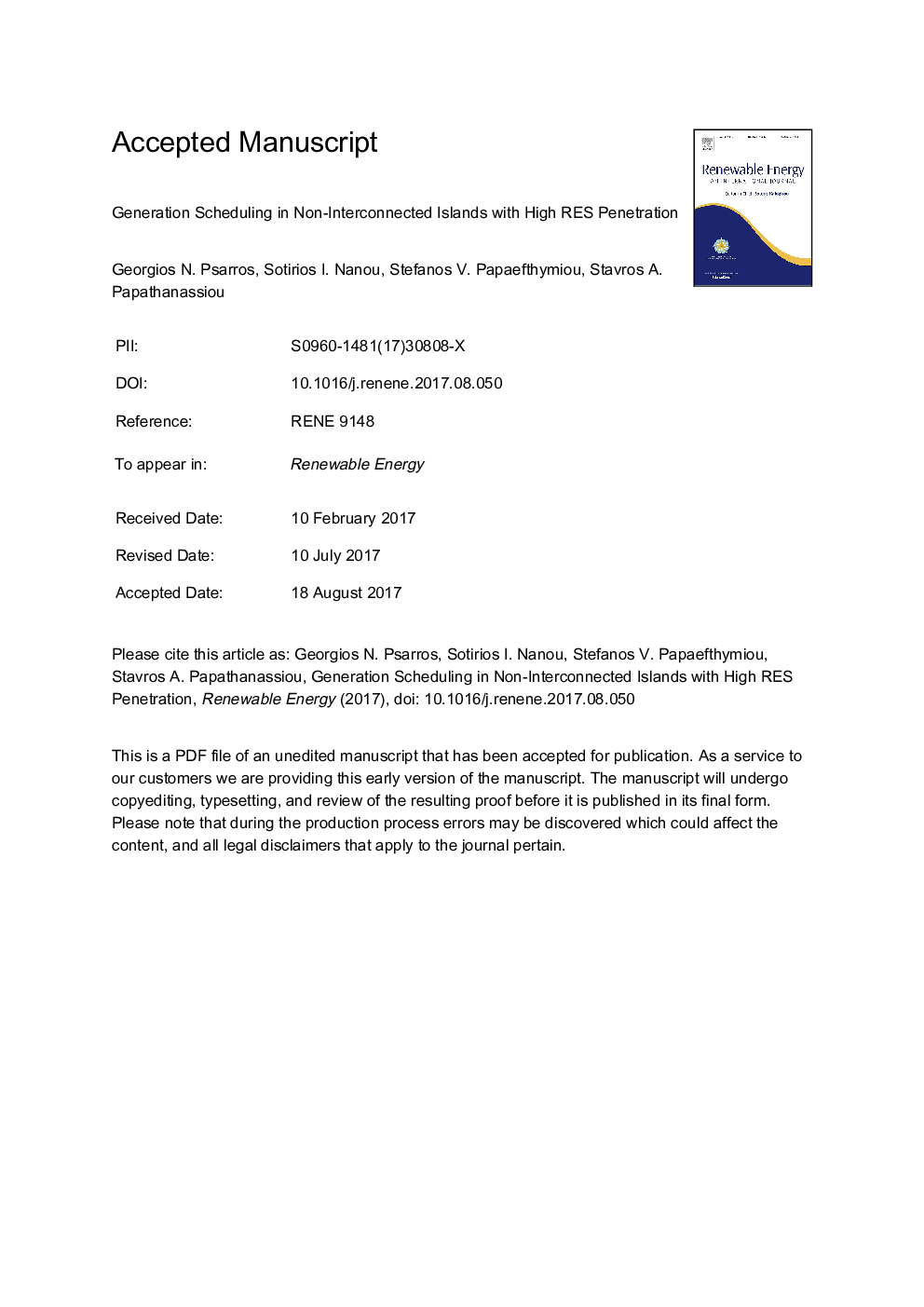| Article ID | Journal | Published Year | Pages | File Type |
|---|---|---|---|---|
| 6765222 | Renewable Energy | 2018 | 22 Pages |
Abstract
In this paper, the generation scheduling problem for autonomous island systems with significant penetration of non-dispatchable Renewable Energy Source (RES) generation is investigated, proposing a unit commitment-economic dispatch (UC-ED) model which is fully compatible with the provisions of the regulatory framework currently applicable to the Greek non-interconnected island (NII) systems. Two UC-ED model variants are presented and comparatively assessed, in order to illustrate the impact of various system parameters (technical characteristics of the thermal units, reserve requirements, etc.) on the expected operating profile of the NII system. A detailed UC-ED model is first proposed, which takes into account the reserve requirements at different time scales (primary, secondary and tertiary reserves) and respective capabilities of generating units. An alternative, simplified UC-ED model is also presented, formulated on the basis of aggregate spinning reserves, to cater for uncertainties in the actual reserve capabilities of existing thermal units. The developed UC-ED models are applied to an existing NII system to evaluate their performance and results obtained on an annual basis.
Related Topics
Physical Sciences and Engineering
Energy
Renewable Energy, Sustainability and the Environment
Authors
Georgios N. Psarros, Sotirios I. Nanou, Stefanos V. Papaefthymiou, Stavros A. Papathanassiou,
